Democrats kept the Senate this year, but 2024 may be harder
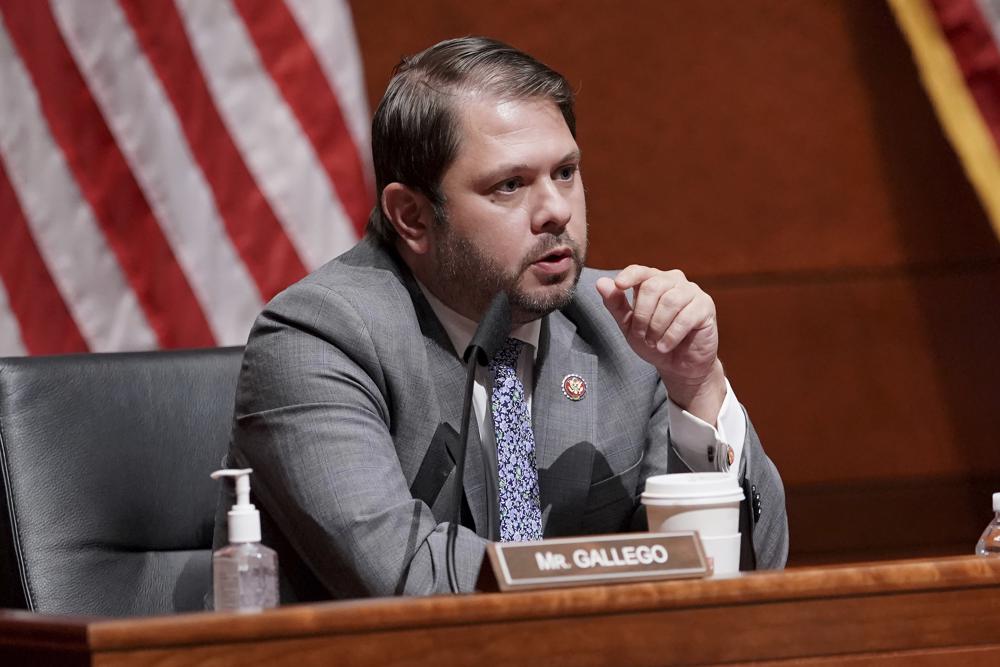
Democrats celebrating a successful effort to keep control of the U.S. Senate this year will soon confront a 2024 campaign that could prove more challenging. The party enters the next cycle defending 23 seats, including two held by independents who caucus with Democrats. That’s compared with just 10 seats that Republicans hope to keep in their column. Adding to the potential hurdles is that some 2024 contests are in states that have become increasingly hostile to Democrats, including Montana, Ohio, and West Virginia. Other Democratic-held seats are in some of the same hotly contested states that were at the center of this year’s midterms, such as Pennsylvania, Arizona, and Nevada. And while Democrats carried each of those races, they did so at great cost and with sometimes narrow margins. In Nevada, for instance, Democratic incumbent Sen. Catherine Cortez Masto won by less than 1 percentage point, or about 9,000 votes. For now, both parties insist they’re laser-focused on coming out on top in the December 6 Senate runoff in Georgia. But Democrats who are on the ballot in 2024 know that they could face fierce headwinds and are studying the results of this year’s election when the party outperformed expectations. For Nevada Sen. Jacky Rosen, a Democrat facing her first reelection campaign, that means staying focused on kitchen table issues and touting legislation like the infrastructure law and gun violence legislation signed by President Joe Biden. “We know that races are always close,” Rosen said in an interview. “We never take anything for granted.” The dynamics of the next Senate campaign could be influenced by a variety of outside factors, particularly the presidential election and the attention it generates. Biden, who turned 80 this month, has said his “intention” is to run for reelection and that he will make a final decision early next year. Former President Donald Trump has already announced a third White House bid, and multiple other Republicans are lining up to launch campaigns. The eventual nominee in each party could have a profound impact on down-ballot races, including those for Senate. But perhaps the biggest question for Senate Democrats seeking reelection will be who Republicans nominate as their opponents. The GOP lost several Senate elections this year, including those in Arizona, Pennsylvania, and Nevada, after Trump-backed candidates struggled to raise money and connect with a broader, more moderate range of voters during the general election. In Nevada, the Republican field to challenge Rosen has not begun to shape up but is expected to attract several contenders. One name receiving attention is Sam Brown, a former U.S. Army captain who was awarded a Purple Heart after being severely wounded in Afghanistan. Brown ran for Senate this year and put up a strong challenge in the Republican primary before losing to Adam Laxalt, who lost in the general election to Cortez Masto. Richard Hernandez, who was Brown’s campaign adviser, said, “He has committed to his supporters that he will never stop fighting for their issues, but he has not made any decisions as to whether that involves a future run for office.” Also in the southwest, Arizona Sen. Kyrsten Sinema, a centrist Democrat, will be up for reelection. The race, like other recent statewide contests in Arizona, is expected to be very competitive. But Sinema is likely to first face a well-funded primary challenger after angering much of the Democratic base by blocking or watering down progressive priorities like a minimum wage increase or Biden’s big social spending initiatives. She has not said whether she plans to run for reelection. Sinema’s most prominent potential primary challenger is U.S. Rep. Ruben Gallego, who has a long history of feuding with Sinema. Gallego has not announced his plans for 2024 but has made it no secret that he’s thinking about challenging Sinema. He even raised money on the prospect he might oppose Sinema. An independent expenditure group is also raising money, saying it will support grassroots organizations committed to defeating Sinema in a Democratic primary. Republicans hope a bruising Democratic primary might give them an opening to win the seat after losing Senate races in Arizona in three consecutive elections. Sinema is among a trio of moderate Senate Democrats who have sometimes used their leverage in an evenly divided chamber to block or blunt some of Biden’s plans and nominees. They will also be among the party’s most vulnerable incumbents in 2024. The other two senators, Joe Manchin of West Virginia and Jon Tester of Montana, will be running as Democrats in states that Trump handily carried in 2020. Manchin has already drawn a GOP challenger in U.S. Rep. Alex Mooney, who declared a week after winning reelection that he was setting his sights on higher office. Manchin has not yet said whether he’ll run for reelection. Republicans see Tester, a three-term senator, as vulnerable, and the opportunity to run for the seat could draw a fierce primary contest between former Interior Secretary Ryan Zinke and Rep. Matt Rosendale. Zinke, who won a House seat in this year’s midterm elections, said he will decide whether to run next year, and Rosendale declined to answer. Tester has not announced if he will seek another term but has said he anticipates 2024 will be just as tough as his last race in 2018, when he beat Rosendale in a close contest. In Pennsylvania, Democratic U.S. Sen. Bob Casey has not said whether he intends to run for a fourth term. Casey easily won reelection in 2018, but Pennsylvania has been competitive for Republicans, including in this year’s Senate race won by Democrat John Fetterman. One potential Republican challenger whose name has been floated in Pennsylvania is former hedge fund CEO David McCormick, who narrowly lost the Republican primary in this year’s race to celebrity heart surgeon Dr. Mehmet Oz. McCormick advisers declined to comment on that prospect. Conservative activist Kathy Barnette, who finished a close third in the Republican primary, didn’t respond to messages about whether she’s considering a 2024 campaign. Wisconsin, which saw Republican Sen. Ron Johnson narrowly win reelection this year, is also expected to have
More bipartisan support for civil rights site as US monument

An effort to turn the home of a slain civil rights leader into a national monument is gaining more bipartisan support. Republican U.S. Sens. Roger Wicker and Cindy Hyde-Smith of Mississippi and Democratic Sen. Doug Jones of Alabama introduced a bill Monday to make the Medgar Evers home a monument. The U.S. House passed a bill last week to do the same thing. The two chambers must agree on a single bill before it could go to the president. As Mississippi’s first NAACP field secretary beginning in 1954, Evers organized protests and boycotts to fight segregation. He was assassinated by a white supremacist outside his family’s Jackson home in 1963. Interior Secretary Ryan Zinke has recommended national monument status for the Evers home, which is now owned by Tougaloo College. Republished with the permission of the Associated Press.
Cabinet chaos: Trump’s team battles scandal, irrelevance
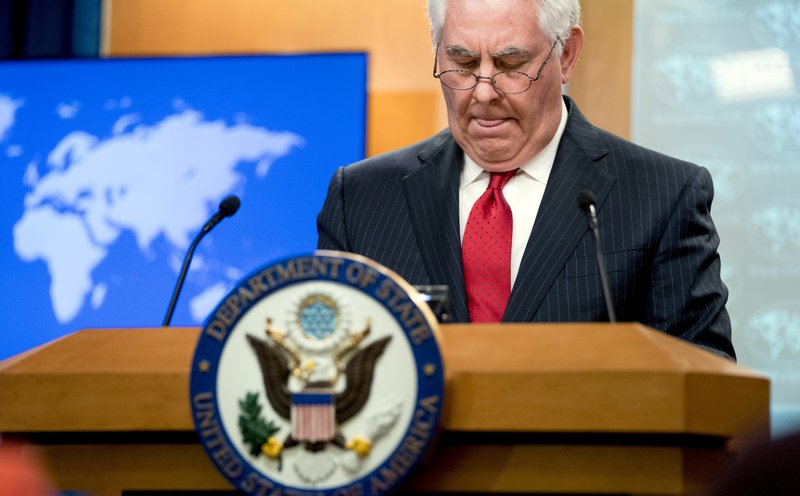
One Cabinet member was grilled by Congress about alleged misuse of taxpayer funds for private flights. Another faced an extraordinary revolt within his own department amid a swirling ethics scandal. A third has come under scrutiny for her failure to answer basic questions about her job in a nationally televised interview. And none of them was the one Trump fired. President Donald Trump’s Cabinet in recent weeks has been enveloped in a cloud of controversy, undermining the administration’s ability to advance its agenda and drawing the ire of a president increasingly willing to cast aside allies and go it alone. Trump’s ouster of Secretary of State Rex Tillerson on Tuesday may have just been the first salvo in a shakeup of a Cabinet that, with few exceptions, has been a team of rivals for bad headlines and largely sidelined by the White House. “Donald Trump is a lone-wolf president who doesn’t want to co-govern with anybody and doesn’t want anyone else getting the credit,” said presidential historian Douglas Brinkley of Rice University. “For his Cabinet, he brought in a bizarre strand of outsiders and right-wing ideologues. Many are famed conservative or wealthy business people, but that doesn’t mean you understand good governance.” The string of embarrassing headlines for Trump’s advisers, as well as the president’s growing distance from them, stands in sharp contrast to how he portrayed the group last year. “There are those that are saying it’s one of the finest group of people ever assembled as a Cabinet,” Trump said then. On Tuesday, the president hinted after firing Tillerson that more changes may be forthcoming, saying an ideal Cabinet is in the making. “I’ve gotten to know a lot of people very well over the last year,” Trump told reporters at the White House, “and I’m really at a point where we’re getting very close to having the Cabinet and other things that I want.” Even as Trump routinely convened Cabinet meetings in front of the cameras for “Dear Leader”-type tributes over the past year, his relationship with many of its members began to splinter. Last summer he began publicly bashing Attorney General Jeff Sessions, a former close adviser who was the first senator to back his campaign. Furious that the attorney general recused himself from the Russia probe that has loomed over the White House, Trump has privately mused about firing Sessions and taken to delivering unprecedented Twitter broadsides against him. Trump has used the words “beleaguered” and “disgraceful” to describe Sessions, who only recently stood up to the president and defended his recusal decision. Tillerson also frequently clashed with Trump, who never forgave the outgoing secretary of state for reportedly calling him “a moron” last summer after grumbling that the president had no grasp of foreign affairs. The pair never developed a particularly warm relationship. Last November, during a full day of meetings in Beijing, Trump and his senior staff were served plates of wilted Caesar salad as they gathered in a private room in the Great Hall of the People. None of the Americans moved to eat the unappetizing dish, but Trump prodded Tillerson to give it a try, according to a senior administration official. “Rex,” the president said, “eat the salad.” Tillerson declined, despite Trump’s urging. After repeatedly undermining and contradicting Tillerson, Trump at last fired his secretary of state in a tweet. Trump in recent days has told confidants that he feels emboldened. He’s proud of his unilateral decisions to impose sweeping tariffs on metal imports and to meet with North Korean dictator Kim Jong Un, and far less willing to put up with disloyalty around him, according to a person who has spoken to the president in recent days but was not authorized to discuss private conversations publicly. Trump’s esteem for the Cabinet has faded in recent months, according to two White House officials and two outside advisers. He also told confidants that he was in the midst of making changes to improve personnel and, according to one person who spoke with him, “get rid of the dead weight” — which could put a number of embattled Cabinet secretaries on notice. The officials all spoke on condition of anonymity to discuss internal matters. Interior Secretary Ryan Zinke underwent questioning Tuesday by Senate Democrats, who accused him of spending tens of thousands of dollars on office renovations and private flights while proposing deep cuts to conservation programs. Zinke pushed back, saying he “never took a private jet anywhere” — because all three flights he had taken on private planes as secretary were on aircraft with propellers, not jet engines. Veterans Affairs Secretary David Shulkin’s days on the job may be limited after a bruising internal report found ethics violations in connection with his trip to Europe with his wife last summer, according to senior administration officials. He also has faced a potential mutiny from his own staff: A political adviser installed by Trump at the Department of Veterans Affairs has openly mused to other VA staff about ousting the former Obama administration official. Trump has floated the notion of moving Energy Secretary Rick Perry to the VA to right the ship, believing Shulkin has become a distraction, according to two people familiar with White House discussions. They were not authorized to discuss internal deliberations and spoke on condition of anonymity. Others under the microscope: —White House aides deemed Education Secretary Betsy DeVos’ recent appearance on “60 Minutes” a disaster as she struggled to defend the administration’s school safety plan and could not answer basic questions about the nation’s education system. —Housing and Urban Development Secretary Ben Carson came under fire last month after reports his agency was spending $31,000 for a new dining set, a purchase HUD officials said was made without Carson’s knowledge. —Environmental Protection Agency Administrator Scott Pruitt has faced questions about $25,000 spent on a soundproof “privacy booth” inside his office to prevent eavesdropping on his phone calls and another $9,000 on biometric locks. —The first Cabinet member to
Alabama to receive over $2.3 million in grants to preserve civil rights history

On Monday, the U.S. Department of the Interior, and the National Parks Service announced $12.6 million in grants to fund 51 projects in 24 states across the nation. The grants have been provided to preserve sites and highlight stories connected to the Civil Rights movement, and events leading up to it. Alabama itself will be receiving over $2.3 million in grants for projects within the state, including the repair and preservation of the historic Sixteenth Street Baptist Church in Birmingham Ala., and the restoration and rehabilitation of the Perry County Jailhouse. in Marion, Ala. “An integral part of the Interior and National Park Service mission is to help preserve and tell America’s story,” said Ryan Zinke, U.S. Secretary of the Interior. “These grants will benefit places across the nation that help tell an essential piece of that story through the African American struggle for civil rights and equality.” “Through the work and engagement of public and private partners, these grants will preserve a defining part of our nation’s diverse history,” Dan Smith, Deputy Director of the National Park Service said. “By working with local communities to preserve these historic places and stories, we will help tell a more complete narrative of the African American experience in the pursuit of civil rights.” A full list of grants designated for Alabama and the projects they will be funding is as follows: Alabama The Restoration of Mount Zion A.M.E. Zion Church Memorial Annex Mount Zion Center Foundation, Inc. $500,000 Alabama Restoration and Rehabilitation of the Perry County Jailhouse Perry County Commission $500,000 Alabama Preservation, Repair and Restoration of the Historic Sixteenth Street Baptist Church: Phase III Sixteenth Street Baptist Church $500,000 Alabama Moore Building Master Plan and Phase I Rehabilitation Alabama Historical Commission $365,720 Alabama Second Phase Continuation in the Preservation of Brown Chapel AME Historic Brown Chapel AME Church Preservation Society, Inc. $300,000 Alabama 21st Century Preservation & the Next Generation of Global Activism: Archives Preservation and Digitization Project Birmingham Civil Rights Institute $44,918 Alabama Civil Rights Struggle in the Shoals University of North Alabama $45,364 Alabama Freedom Rides Museum 60th Anniversary Commemoration Exhibit Plans Alabama Historical Commission $50,000 Alabama Montgomery Alabama Civil Rights Survey/Planning/Research/Documentation City of Montgomery $50,000
Interior chief Ryan Zinke urges shrinking 4 national monuments in West
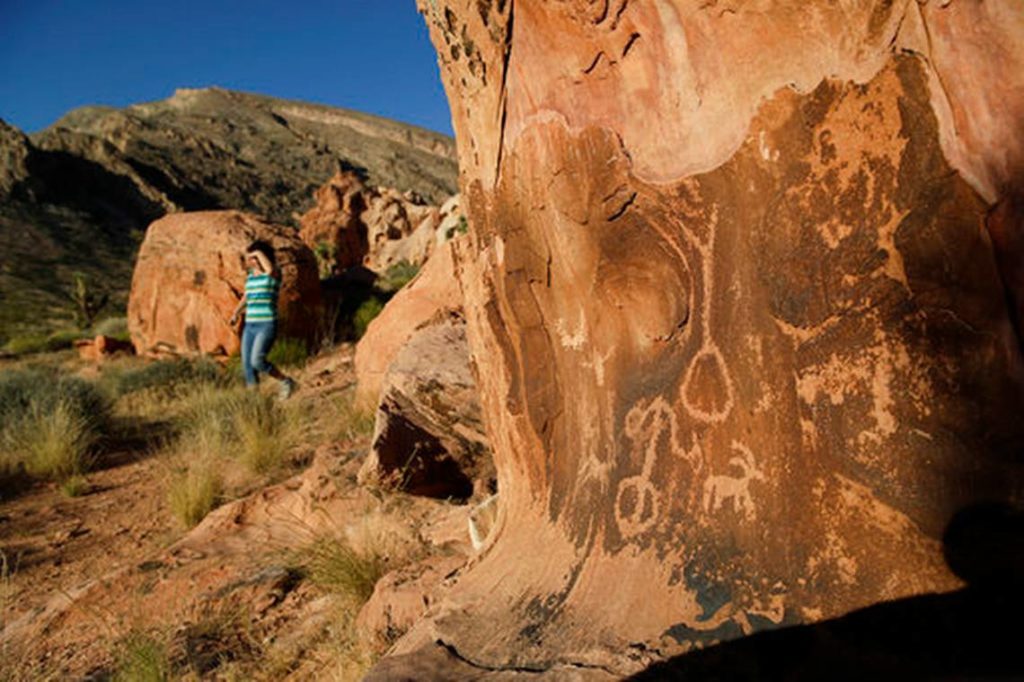
Interior Secretary Ryan Zinke is recommending that four large national monuments in the West be reduced in size, potentially opening up hundreds of thousands of acres of land revered for natural beauty and historical significance to mining, logging and other development. Zinke’s recommendation, revealed in a leaked memo submitted to the White House, prompted an outcry from environmental groups who promised to take the Trump administration to court to block the moves. The Interior secretary’s plan would scale back two huge Utah monuments – Bears Ears and Grand Staircase-Escalante – along with Nevada’s Gold Butte and Oregon’s Cascade-Siskiyou. The monuments encompass more than 3.6 million acres – an area larger than Connecticut – and were created by Democratic administrations under a century-old law that allows presidents to protect sites considered historic, geographically or culturally important. Zinke’s plan also would allow logging at a newly designated monument in Maine and urges more grazing, hunting and fishing at two sites in New Mexico. It also calls for a new assessment of border-safety risks at a monument in southern New Mexico. Bears Ears, designated for federal protection by former President Barack Obama, totals 1.3 million acres in southeastern Utah on land that is sacred to Native Americans and home to tens of thousands of archaeological sites, including ancient cliff dwellings. Grand Staircase-Escalante, in southern Utah, includes nearly 1.9 million acres in a sweeping vista larger than the state of Delaware. Republicans have howled over the monument since its creation in 1996 by former President Bill Clinton. Cascade-Siskiyou, which juts into Northern California, protects about 113,000 acres in an area where three mountain ranges converge, while Gold Butte protects nearly 300,000 acres of desert landscapes that feature rock art, sandstone towers and wildlife habitat for bighorn sheep and the threatened Mojave Desert tortoise. The Associated Press obtained a copy of the 19-page memo, which was submitted to the White House last month and has not been officially released. Two marine monuments in the Pacific Ocean also would be reduced under Zinke’s memo, and a third monument off the Massachusetts coast would be modified to allow commercial fishing. Commercial fishing also would be allowed at two Pacific sites, west of Hawaii and near American Samoa. President Donald Trump ordered a review of 27 sites earlier this year after complaining about a “massive land grab” by Obama and other former presidents. “It’s gotten worse and worse and worse, and now we’re going to free it up, which is what should have happened in the first place. This should never have happened,” Trump said in ordering the review in April. National monument designations add protections for lands known for their natural beauty with the goal of preserving them for future generations. The restrictions aren’t as stringent as for national parks, but include limits on mining, timber cutting and recreational activities such as riding off-road vehicles. No president has tried to eliminate a monument, but boundaries have been trimmed or redrawn 18 times, according to the National Park Service. Zinke’s recommendations to pare down the four Western monuments – and allow more economic activity at three other sites – “represent an unprecedented assault on our parks and public lands” by the Trump administration, said Jamie Williams, president of the Wilderness Society. “This callous proposal will needlessly punish local, predominantly rural communities that depend on parks and public lands for outdoor recreation, sustainable jobs and economic growth,” Williams said, vowing to challenge in court any actions by the Trump administration to reduce the size of national monuments. It was not clear from the memo how much energy development would be allowed on the sites recommended for changes, but Zinke said in the report that “traditional uses of the land such as grazing, timber production, mining, fishing, hunting, recreation and other cultural uses are unnecessarily restricted.” Those restrictions especially harm rural communities in western states that have traditionally benefited from grazing, mining and logging, said Zinke, a former Montana congressman. “Zinke claims to follow Teddy Roosevelt, but he’s engineering the largest rollback of public land protection in American history,” said Kieran Suckling, executive director of the Center for Biological Diversity, another environmental group. A spokeswoman for Zinke referred questions to the White House, which said in a statement that it does not comment on leaked documents. If Trump adopts the recommendations, it would quiet some of the worst fears of his opponents, who warned that vast public lands and marine areas could be lost to states or private interests. But significant reductions in the size of the monuments, especially those created by Obama, would mark the latest in a string of actions where Trump has sought to erode his Democratic predecessor’s legacy. The recommendations cap an unprecedented four-month review based on Trump’s claim that 1906 Antiquities Act has been misused by recent presidents to create oversized monuments that hinder energy development, grazing and other uses. By sealing off more than 3 million acres in solidly Republican Utah, Obama and Clinton hurt local economies in rural areas that depend on logging and ranching, said Matt Anderson of the conservative Sutherland Institute. “It begs the question: Are these expansions more about ulterior motives like climate change, presidential legacies, corporate interests like outdoor recreation companies, or are they about antiquities?” Anderson asked. Republished with permission from the Associated Press.
Democrats pressure Donald Trump to keep national monuments

Western Democrats are pressuring President Donald Trump not to rescind land protections put in place by President Barack Obama, including Utah’s Bears Ears National Monument. Obama infuriated Utah Republicans when he created the monument in late December on 1.3 million acres of land that is sacred to Native Americans and home to tens of thousands of archaeological sites, including ancient cliff dwellings. Republicans have asked Trump to take the unusual step of reversing the designation, saying it will add another layer of unnecessary federal control and close the area to new energy development. In a letter this week, nine Western Democratic senators wrote Trump to say that weakening protections for Bears Ears or any other national monument would be a direct affront to local communities and stakeholders. “This is especially true in the case of Bears Ears National Monument, for the Native American tribes who call this living cultural landscape their ancestral home,” the senators wrote. The White House has said it is reviewing the decisions by the Obama administration to determine economic impacts, whether the law was followed and whether there was appropriate consultation with local officials. In an ongoing back-and-forth with Republicans over the monument, Democrats on the House Natural Resources Committee released documents Thursday to try to bolster their argument that there was adequate consultation. The documents from Arizona Rep. Raul Grijalva, the senior Democrat on the panel, detail repeated phone calls and visits between the Obama administration and Utah’s congressional delegation and governor. The emails show that Utah officials hoped to work with the federal government on the issue before Obama designated the monument in the final days of his administration on Dec. 28. In an email on Dec. 21, as state officials grew increasingly concerned that the designation was coming, a member of Utah Gov. Gary Herbert‘s staff wrote an Interior Department official and thanked her for her time. “I’m not kidding when I say you’re an amazing example of a public servant,” wrote Herbert’s director of federal affairs, whose name was blacked out in the emails. Democrats said the back-and-forth showed collaboration. “If anyone wants to paint Bears Ears National Monument as a surprise or the product of rushed or incomplete planning, they’ll have to explain hundreds of emails and dozens of pages of shared work product,” Grijalva said. A spokeswoman for House Natural Resources Committee Chairman Rob Bishop, R-Utah, fired back. The spokeswoman, Molly Block, said that releasing the documents was a “desperate attempt to create a façade of local support.” When the designation was announced, Republicans in the state said it was an egregious abuse of executive power. It was opposed by the governor and the entire congressional delegation, in addition to many local residents. Herbert said then that the designation “violated assurances made by (Obama’s) interior secretary to take into account local concerns before making a monument designation.” In his January confirmation hearing, incoming Interior Secretary Ryan Zinke told senators that the president would probably be challenged in court if he tried to nullify a monument, and he would prefer to work with the state. Republished with permission of The Associated Press.
Postelection dominoes create 5 open House seats

The postelection dominoes of President Donald Trump‘s administration picks and a California Democratic appointment have created five openings in the House, and that means five special elections in the coming months. It will take some Democratic upsets for this trial heat for 2018 to dent GOP control of the House, where Republicans have a 237-193 edge. Republicans are defending four GOP-leaning seats. Democrats are protecting territory in a liberal California district. Republicans say that puts pressure on Democrats to prove they can capitalize on widespread opposition to Trump. Democrats counter that it’s merely a free opportunity to pick up a seat, maybe two, ahead of next year’s midterm elections. A look at the five congressional contests: GEORGIA’S 6th CONGRESSIONAL DISTRICT This wealthy district spanning many of Atlanta’s northern suburbs has elected former Speaker Newt Gingrich, Sen. Johnny Isakson and current Health and Human Services Secretary Tom Price, all Republicans. But Democrats believe they have a shot, based on Trump’s underperformance and the early fundraising success of a 30-year-old former congressional staffer, Jon Ossoff. Price won 68 percent of the vote in November, while Trump only edged Democrat Hillary Clinton, 48-47 percent. Ossoff is trying to thread the needle, condemning Trump and highlighting the oversight role of Congress, yet styling himself as a business-friendly centrist. “I believe voters are tired of the partisanship and ready for something fresh,” he says, convinced he can win GOP-leaning moderates. Television airwaves in this expensive market already are filled with Ossoff ads criticizing Trump and also a Republican super PAC ad criticizing the upstart Democrat, a clear sign Republicans aren’t taking any chances. Ossoff’s path depends on advancing to a June 20 runoff from an April 18 “jungle primary” that will have more than a dozen candidates from both parties on the same ballot. In the likely event that no one captures a majority in April, the top two vote-getters, regardless of party, move on. Republicans say Ossoff, even if he advances, won’t stand up against one of several Republican candidates who are well-regarded in the district. ___ MONTANA’S AT-LARGE CONGRESSIONAL DISTRICT Republican multimillionaire Greg Gionforte will try again to win over Montana voters after losing the 2016 governor’s race. This time, he’s talking up Trump. “This election will be a referendum on Donald Trump and this administration,” Gianforte said after last week’s GOP nominating convention. Gianforte won 46 percent of the vote in November against Democratic Gov. Steve Bullock, double digits behind Trump’s 57 percent. Gionforte will face musician and political newcomer Rob Quist, also chosen by a state party convention. Quist, a Democrat, already is the target of attack ads from the Congressional Leadership Fund, the same Republican super PAC that has been going after Ossoff in Georgia. The winner of a May 25 special election will succeed Ryan Zinke, who now leads Trump’s Interior Department. Zinke won re-election with 56 percent of the vote before being tapped for the Cabinet post. Montanans lean conservative, but they are willing to elect Democrats. Bullock, now in his second term, succeeded two-term Democratic Gov. Brian Schweitzer, and Jon Tester is in his second Senate term. Still, Montana’s single House seat has been in GOP hands since 1997. Gionforte can self-finance his campaign, having made a fortune when Oracle paid $1.8 billion to acquire the technology firm he started. Quist has backing from Schweitzer, who remains popular in the state. ____ KANSAS’ 4th CONGRESSIONAL DISTRICT This reliably Republican district anchored by Wichita has an April 11 special election to pick a successor to Mike Pompeo, now Trump’s CIA director. In a party nominating convention, Republicans tapped state Treasurer Ron Estes, who twice won huge margins statewide and held local office in Wichita for years before that. Democrats, also in a convention, chose Wichita attorney Jim Thompson. Democrats took Thompson’s long odds over the former state treasurer whom Estes defeated in 2010. Republicans have held the seat since their 1994 sweep. ___ SOUTH CAROLINA’s 5th CONGRESSIONAL DISTRICT The seat opened up when Trump tapped tea party lawmaker Mick Mulvaney to head the Office of Management and Budget. Candidates for May 2 party primaries can officially qualify only after March 13, but several Republicans are in. Among them: state legislative leader Tommy Pope and former state Republican Party Chairman Chad Connelly, who spent the last several years coordinating the national GOP’s outreach to evangelicals. So far, two Democrats are in the race: Archie Parnell, a Goldman Sachs senior adviser, and Alexis Frank, an Army veteran who is now a student. The rapidly growing district includes the suburbs on the southern edge of Charlotte, North Carolina, and the college town Rock Hill, a profile that had South Carolina Democrats quietly hopeful they could threaten Mulvaney in November. But he won easy re-election. ___ CALIFORNIA’s 34th CONGRESSIONAL DISTRICT This Los Angeles County district is the most lopsided of the special-election contests. Clinton swamped Trump here. The opening came when Gov. Jerry Brown elevated Rep. Xavier Beccera to state attorney general, replacing Kamala Harris, who ascended to the U.S. Senate. The district’s liberal leanings likely mean two Democrats — out of 19 who qualified — will advance from an April 4 jungle primary to a June 6 general election. Republished with permission of The Associated Press.
Senate confirms Montana Rep. Ryan Zinke as Interior secretary
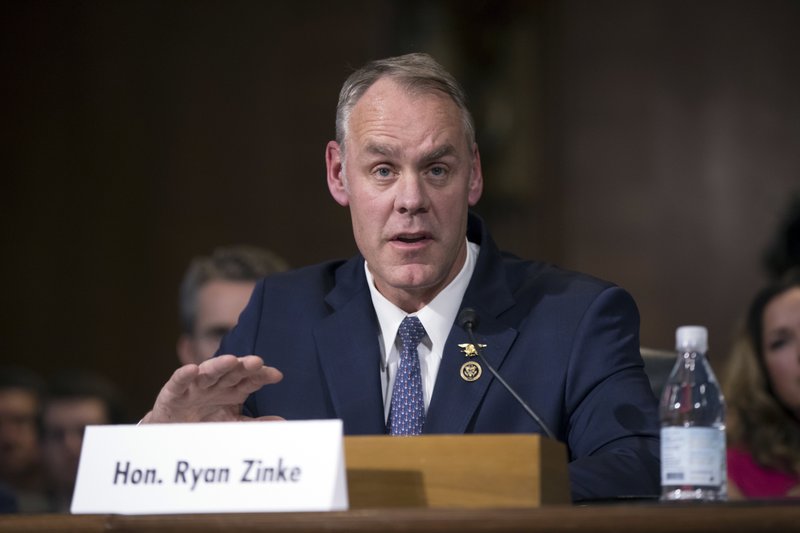
Montana Rep. Ryan Zinke won Senate confirmation Wednesday as President Donald Trump‘s Interior secretary, giving him responsibility for overseeing the nation’s 400 million acres of public land, mostly in the West. The Republican-controlled Senate approved the nomination, 68-31 as 16 Democrats and one independent joined with 51 Republicans to support the choice. Several Democrats from Western states as well as those facing tough re-elections next year, including Montana’s Jon Tester, Indiana’s Joe Donnelly and Joe Manchin of West Virginia, voted for Zinke. Trump’s choice to lead Housing and Urban Development, Ben Carson, cleared a Senate hurdle on a 62-37 vote. Carson’s confirmation was expected later this week. With Zinke’s approval, the Senate has confirmed 16 out of 22 of Trump’s Cabinet and Cabinet-level nominations. Zinke, 55, a former Navy SEAL and Montana state senator, resigned as a delegate to the Republican National Convention last year to protest the GOP’s position in favor of land transfers to state or private groups. Still, his stance on public lands has come into question in recent weeks after he voted in favor of a House rule that would allow federal land transfers to be considered cost-free and budget-neutral, making it easier for drilling and development. Senate Minority Leader Chuck Schumer, D-N.Y., said Zinke at Interior should “concern every lover of our great and grand national parks.” Dismissing the Republican’s claim to be like the late President Teddy Roosevelt, Schumer said, “You can’t be a Roosevelt conservationist if you sell off public lands.” Countering the Democrat, Montana Republican Sen. Steve Daines said Zinke “will be a strong advocate for our public lands.” Zinke, a Republican in his second term as Montana’s sole House member, told senators at a January hearing that federal land management should be done under a multiple-use model that allows hiking, hunting, fishing and camping along with harvesting timber, mining for coal and drilling for oil and natural gas. Zinke also pledged to tackle an estimated $12 billion backlog in maintenance and repair at national parks and stand firm against attempts to sell, give away or transfer federal lands. Sen. Maria Cantwell of Washington state, the top Democrat on the Senate Energy and Natural Resources Committee, said she is not convinced that Zinke will be able to “stand up” to Trump and prevent oil, gas and mining companies from unduly exploiting public lands. Cantwell also said Zinke appears willing to support transfer of some federal lands to states, citing his vote for the GOP-sponsored rules package. She worries that Zinke may weaken or repeal recent designations by President Barack Obama of national monuments, including Utah’s Bears Ears monument. Senate Energy Chairwoman Lisa Murkowski of Alaska called Zinke an excellent choice, noting that the fifth-generation Montanan is an avid hunter, fisherman and skier. “He was born in the West. He lives in the West. He understands it, he understands its people,” Murkowski said. Zinke also has “firsthand experience in trying to solve” problems faced by the Interior Department and has “shown he understands the need for the department to be a partner of Alaska and our Western states,” Murkowski said. During his hearing, Zinke rejected Trump’s claim that climate change is a hoax, saying it is indisputable that environmental changes are affecting the world’s temperature and human activity is a major reason. “I think where there’s debate is what that (human) influence is and what can we do about it,” he said. Zinke also pledged to work with members of Congress on monument designations, noting the strong opposition to Bears Ears by Utah’s congressional delegation and governor. “I think the state should have a say on it,” he said. Republished with the permission of The Associated Press.
Dems force delays in votes on Jeff Sessions, Steve Mnuchin, Tom Price
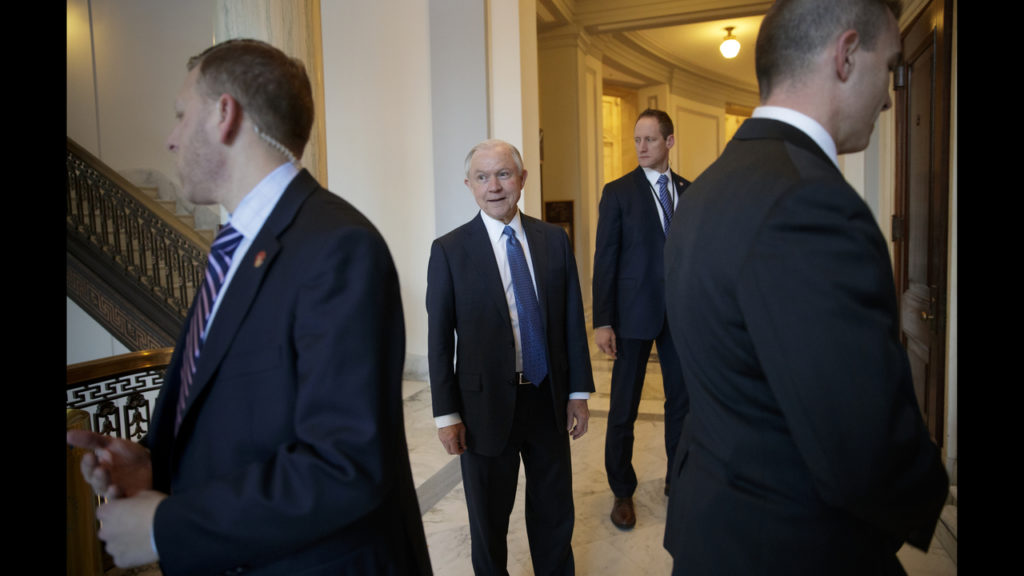
Democrats forced delays Tuesday in planned Senate committee votes on President Donald Trump‘s picks for Health and Treasury secretaries and attorney general, amid growing Democratic surliness over the administration’s aggressive early moves against refugees and an expected bitter battle over filling the Supreme Court vacancy. Democrats abruptly boycotted a Senate Finance Committee meeting called to vote on Rep. Tom Price, R-Ga., the Health nominee and Steve Mnuchin, Trump’s Treasury selection, saying both had misled Congress about their financial backgrounds. The Democrats’ action prevented the Finance panel from acting because under committee rules, 13 of its members — including at least one Democrat — must be present for votes. It was unclear when the panel would reschedule to votes. At the Senate Judiciary Committee, a meeting considering Sen. Jeff Sessions, R-Ala., to be attorney general lasted so long — chiefly because of lengthy Democratic speeches — that Chairman Charles Grassley, R-Iowa, said the panel would meet again Wednesday. The meeting on Sessions’ nomination was coming with Democrats and demonstrators around the country in an uproar over Trump’s executive order temporarily blocking refugees. Even some Republicans were warning it could hinder anti-terrorism efforts. Not everything ground to a halt. The Senate education committee voted 12-11 to send Trump’s pick to head the Education Department, Betsy DeVos, to the full Senate for a confirmation vote. The Senate Energy and Natural Resources Committee quickly approved former Texas Gov. Rick Perry as Energy secretary by 16-7, and Rep. Ryan Zinke, R-Mont., to head Interior by 16-6. And the full Senate easily confirmed Elaine Chao to become transportation secretary by a 93-6 vote. Chao was labor secretary under President George W. Bush, and is wife of Senate Majority Leader Mitch McConnell, R-Ky. Just before the Finance committee was scheduled to vote on Price and Mnuchin, Democrats called a briefing for reporters and announced their plan to force a delay. Sen. Debbie Stabenow, D-Mich., said Price and Mnuchin would hold positions “that directly affect peoples’ lives every day. The truth matters.” Finance Committee Chairman Orrin Hatch, R-Utah, accused Democrats of “a lack of desire to fulfill their constitutional responsibilities.” “They ought to stop posturing and acting like idiots,” he said. In 2013 when Democrats controlled the Senate, Republicans boycotted a committee vote on Gina McCarthy to head the Environmental Protection Agency, temporarily stalling it. Democrats cited one report in The Wall Street Journal that Price received a special, discounted offer to buy stock in a biomedical company, which contradicted his testimony to Congress. They said another report in The Columbus Dispatch showed documents revealing that Mnuchin had not been truthful with the Senate in the confirmation process in comments about how his bank OneWest had handled home foreclosures. Republicans have supported both men, and both have strongly defended their actions. Democrats have opposed Price, a seven-term congressional veteran, for his staunch backing of his party’s drive to scuttle Obama’s health care law and to reshape Medicare and Medicaid, which help older and low-income people afford medical care. They’ve also assailed Price for buying stocks of health care firms, accusing him of using insider information and conflicts of interest for backing legislation that could help his investments. Price says his trades were largely managed by brokers and that he’s followed congressional ethics rules. Democrats have criticized Mnuchin for not initially revealing nearly $100 million in assets, and were expected to vote against both nominees. They’ve also accused him of failing to protect homeowners from foreclosures and criticized him for not initially disclosing all his assets. DeVos, a wealthy GOP donor and conservative activist, has long supported charter schools and allowing school choice. That’s prompted opposition from Democrats and teachers’ unions who view her stance as a threat to federal dollars that support public education. Critics have also mocked her for suggesting that guns could be justified in schools to protect students from grizzly bears. Two prominent Republicans on the education committee, Sens. Susan Collins of Maine and Lisa Murkowski of Alaska, said they remained uncertain if they will vote for her on the Senate floor. Murkowski said DeVos has yet to prove that she deeply cares about America’s struggling schools and its children. Republished with permission of the Associated Press.
Former rivals, military leaders, actors to take stage at RNC

Former presidential candidates Ted Cruz, Chris Christie, Scott Walker and Marco Rubio — the latter by video link — are among those set to speak at the Republican National Convention in Cleveland. Military leaders, members of Congress, actors, faith leaders and family members of presumptive presidential nominee Donald Trump are also set to speak in what the Republican National Committee calls “an unconventional lineup” that will challenge the status quo and press for Trump’s agenda. Speaker highlights at the four-day convention, which begins Monday at the Quicken Loans Arena. MONDAY Theme: Make America Safe Again Headliners: Trump’s wife, Melania; Lt. Gen. (ret.) Michael Flynn, U.S. Army; Sen. Joni Ernst, R-Iowa; and Rep. Ryan Zinke, R-Mont. Others: Willie Robertson, star of “Duck Dynasty”; former Texas Gov. Rick Perry; Marcus Luttrell, retired U.S. Navy SEAL; Scott Baio, actor; Pat Smith, mother of Sean Smith, killed in the 2012 attacks in Benghazi, Libya; Mark “Oz” Geist, member of a security team that fought in Benghazi; John Tiegen, member of Benghazi security team and co-author of the book “13 Hours,” an account of the attacks; Kent Terry and Kelly Terry-Willis, siblings of Brian Terry, a Border Patrol agent whose shooting death revealed the botched “Fast and Furious” gun-smuggling operation; Antonio Sabato Jr., actor; Mary Ann Mendoza, Sabine Durden and Jamiel Shaw, immigration reform advocates; Rep. Michael McCaul, R-Texas; David Clarke, sheriff of Milwaukee County, Wis.; Rep. Sean Duffy, R-Wis.; Rachel Campos-Duffy, LIBRE Initiative for Hispanic economic empowerment; Darryl Glenn, Senate candidate in Colorado; Sen. Tom Cotton, R-Ark.; Karen Vaughn, mother of a U.S. Navy SEAL killed in Afghanistan; Sen. Jeff Sessions, R-Ala.; former New York Mayor Rudy Giuliani; and Jason Beardsley of Concerned Veterans for America. ___ TUESDAY Theme: Make America Work Again Headliners: Tiffany Trump, candidate’s daughter; Kerry Woolard, general manager, Trump Winery in Virginia; Donald Trump Jr.; Sen. Shelley Moore Capito, R-W.Va.; former GOP presidential candidate Ben Carson; and actress Kimberlin Brown. Others: Sharon Day, co-chairwoman of Republican National Committee; Dana White, president, Ultimate Fighting Championship; Arkansas Gov. Asa Hutchinson; Arkansas Attorney General Leslie Rutledge; former U.S. Attorney General Michael Mukasey; Andy Wist, founder of Standard Waterproofing Co.; Sen. Ron Johnson, R-Wis.; Chris Cox, executive director, NRA Institute for Legislative Action; golfer Natalie Gulbis; Senate Majority Leader Mitch McConnell, R-Ky.; House Speaker Paul Ryan, R-Wis.; House Majority Leader Kevin McCarthy, R-Calif.; New Jersey Gov. Chris Christie. ___ WEDNESDAY Theme: Make America First Again Headliners: Former presidential candidates Ted Cruz and Marco Rubio; Eric Trump, son of the candidate; former House Speaker Newt Gingrich; and Indiana Gov. Mike Pence, Trump’s pick to be vice president. Others: radio host Laura Ingraham; Phil Ruffin, businessman with interests in real estate, lodging, manufacturing and energy; Florida Attorney General Pam Bondi; retired astronaut Eileen Collins; Michelle Van Etten, small business owner; Kentucky state Sen. Ralph Alvarado Jr.; Darrell Scott, senior pastor and co-founder of New Spirit Revival Center Ministries, Cleveland; Harold Hamm, oil executive; Wisconsin Gov. Scott Walker; Lynne Patton, vice president, Eric Trump Foundation; Sen. Marco Rubio, R-Fla. (by video); Sen. Ted Cruz, R-Texas; Callista Gingrich, wife of Newt Gingrich. ___ THURSDAY Theme: Make America One Again Headliners: Peter Thiel, co-founder PayPal; Tom Barrack, CEO of Colony Capital; Ivanka Trump, daughter of the candidate; and Donald Trump, GOP nominee for president. Others: Brock Mealer, motivational speaker; Rep. Marsha Blackburn, R-Tenn.; Oklahoma Gov. Mary Fallin; Dr. Lisa Shin, owner of Los Alamos Family Eyecare in New Mexico; RNC Chairman Reince Priebus; Jerry Falwell Jr., president of Liberty University and evangelical leader. Republished with permission of the Associated Press.
Prospective speakers multiply in House as all wait on Paul Ryan
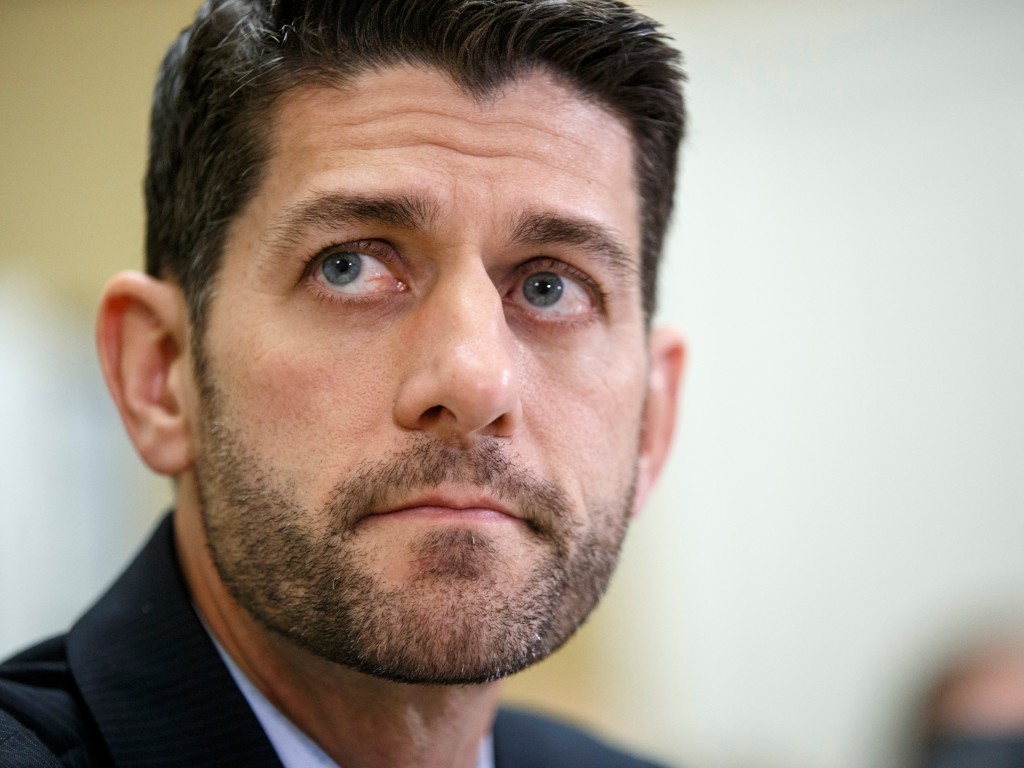
Every day another Republican lawmaker seems to wake up and decide that he – and in at least one case, she – might make a pretty good speaker of the House. The profusion of potential candidates, now approaching double digits, is happening even with all attention focused on Wisconsin Rep. Paul Ryan, the former GOP vice presidential nominee widely seen as the best person for the job. Ryan, who has made clear he does not want to be speaker, is home in Janesville, Wisconsin, thinking it over anyway under pressure from top party leaders. And with Congress out of session for a weeklong recess, Capitol Hill has fallen quiet after a series of wild days during which Speaker John Boehner shocked the House by announcing his planned resignation, and Boehner’s heir apparent, Majority Leader Kevin McCarthy, abruptly took himself out of the running. The stunning developments left a leadership vacuum at the pinnacle of Congress. Now into it are stepping a growing number of Republican lawmakers from around the country, some relative newcomers, others with experience to point to, united by a chance to lunge at the once-in-a-lifetime opportunity to become speaker of the U.S. House, second-in-line to the presidency. Why any of them would want a job that defeated the current occupant and scared off his No. 2 is another question. The daunting rift between establishment-minded lawmakers and the hard-line conservatives who pushed Boehner to the exits shows no sign of dissipating, and threatens to complicate life for whoever next occupies the speaker’s chair. Congress also faces a series of formidable tasks over the next several months, including increasing the federal borrowing limit to avoid a default and paying the government’s bills to stave off a shutdown. Nevertheless, the wannabe speakers are multiplying. “I am humbled to have my name mentioned as a potential candidate, and I am considering the pursuit of the speakership in response to those requests,” Rep. Bill Flores, R-Texas, wrote in a letter to fellow House members Wednesday. “If we all spend enough time on our knees praying for each other, we can heal our divisions and truly work together to restore America to the ‘Shining City on a Hill’ that President Reagan challenged us to become.” Rep. Mike Pompeo, R-Kansas, released a statement observing: “I know every member of the House is looking for the right person. If I can serve the American people and the conservative movement in any way, sign me up. However, a couple weeks ago I was floated as a presidential candidate, so I might be pretty busy.” And a freshman congressman from Montana, Ryan Zinke, got into the action. “We’re looking at it. Our phones are ringing off the hook because I think America wants something different,” Zinke said. “I haven’t decided, but what I have decided is that Congress better do our duty and defend our values of this country.” Several of the lawmakers sought to make clear that they were being urged by their fellow Republicans to run for speaker; not doing so out of their own ambitions. And several also took pains to make clear that they would run only if Ryan does not. “We are all hopeful that Paul is going to say that he would appreciate the opportunity to serve as speaker,” said Rep. Marsha Blackburn of Tennessee, adding that she’s been encouraged by colleagues to look at the job. “It is going to take a listening ear and a steady head to walk our conference through some of these issues,” she said. Others who’ve suggested their interest in the speakership, or contacted fellow lawmakers to sound them out, include GOP Reps. Michael McCaul and Michael Conaway of Texas, Lynn Westmoreland of Georgia, and Darrell Issa of California. Reps. Daniel Webster of Florida and Jason Chaffetz of Utah were running against McCarthy before he dropped out, and remain in the race. Still others, such as Rep. Matt Salmon of Arizona, have seen their names pushed by outside groups seeking new leadership for the House GOP. “These are all really, really, good people, and I think if they could convince the conference that they would run the conference in a way that’s more member-oriented, many of them could be good speakers,” GOP Rep. Mick Mulvaney of South Carolina, a founding member of the hard-line House Freedom Caucus, said in an interview after several potential candidates contacted him to gauge support. Although Ryan would be the prohibitive favorite for the job if he does seek it, Mulvaney and others disputed arguments that he’s the only one who could unite the House GOP. Ryan, an expert on budgetary matters who chairs the tax-writing Ways and Means Committee chairman, is already drawing criticism from some on the right for his support for comprehensive immigration legislation and government bailouts. “I like him and I respect him, and I think there are a number of directions he might take us that I don’t want to go, and immigration is one of those,” said Rep. Steve King, R-Iowa. “I don’t think he would be one who would transform (the House) and turn it into a membership-driven organization and I think this is our one chance to do that.” Republished with permission of the Associated Press.


